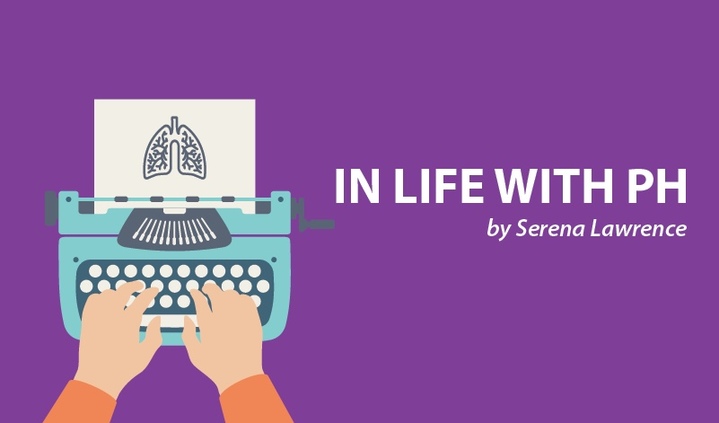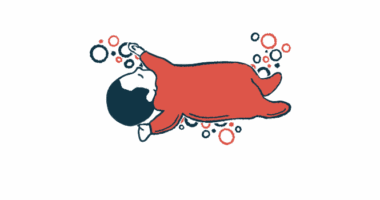Meditation to Help Manage Stress

After being diagnosed with pulmonary hypertension, I turned to alternative health practices to complement my pulmonary hypertension treatments, (affectionately known by friends and family as boner pills). Sorry if that offends anyone, but I had a good laugh after my heart cath, when a doctor came over with the cutest little sample-size of Cialis for me to take home! Prior to this, I had only seen Cialis commercials, with happy men singing on their way to work. (Cialis is an approved treatment for enlarged prostates.)
A naturopath recommended meditation in combination with a few other lifestyle changes. I wasn’t sure meditation was right for me. Truthfully, it sounded boring. Was someone seriously prescribing me 15 minutes of solitude while sitting on a weird pillow, listening to ambient chimes and trying to erase my thoughts? To me, meditation sounded like punishment. Living in the digital world, I am constantly busy checking emails (or looking at cute dogs on Instagram). How was I supposed to shut everything off for at least 15 minutes?
I left my naturopath appointment feeling completely overwhelmed; having to change my entire diet, and learn how to sit in silence with myself. She explained some of the benefits of meditation to me, but it still felt like a weird concept. However, it felt like the practice of meditation kept popping up in all the self-help books, TV shows, and news/research articles I came across. — practically slapping me in the face. It was time to finally buckle down and meditate.
Can mindfulness and meditation help with your overall health?
The Journal of the American Medical Association, JAMA Internal Medicine, published a study about meditation in March 2014. The findings suggested that meditation can offer some help to people who suffer from depression, anxiety and pain. Newer research is focusing on the mind/body connection, and how mindfulness can influence changes within the body.
Dr. Dean Ornish, a clinical professor of medicine at the University of California, San Francisco, has conducted studies where he included a holistic approach to heart health, including the practice of meditation along with stress management, exercise and diet. He offers on a website a lifestyle program that includes meditation as a way to help reverse fatty plaque buildup in the coronary artery.
Deepak Chopra, an MD turned mindfulness guru, has spent much of his career explaining the benefits of meditation. According to Chopra, some of these benefits include:
• reducing coritisol (a stress hormone) levels found in the blood
• helping rebalance and regulate biochemicals after being exposed to stress
• helping to release oxytocin and dopamine, two biochemicals that help with de-stressing
• reducing stress-related symptoms, such as high blood pressure
• helping to reduce blood pressure, dilate blood vessels, and slow down heart rate (related to stress) in the average person
It is important to note that the effects of meditation for pulmonary hypertension patients is unknown. Much of the research out there was conducted on the general population. Many patients with pulmonary hypertension suffer from high blood pressure in the pulmonary system, which differs than regular hypertension.
However, more and more studies are being done to measure the effects of mindfulness and meditation on cancer patients. Some studies show that meditation can help cancer patients reduce the depression and anxiety they experience, improve their concentration and mood, and also help boost their immune system. A study conducted in 2000 found that cancer patients who meditated experienced 67% fewer mood disturbances and 31% fewer stress symptoms than those who did not meditate.
While it is possible that meditation could help with some symptoms related to pulmonary hypertension, I think it is important to note its benefits for managing stress. Stress can have a very powerful and negative affect on anyone’s body.
I have found that stress can make my pulmonary hypertension symptoms feel worse, and stress management is another way to take care of myself. I may not be able to avoid stress, but meditation certainly helps me to calm down more quickly.
Let’s face it, living with a disease like pulmonary hypertension can be very stressful. I can feel my heart rate go on up every time a doctor’s name appears in an incoming call to my phone! Life in general can be full of stressers, from driving home during rush-hour to waiting to hear the results from your last echo. This is why meditation may be something to incorporate into your daily routine.
Please look out for my next post where I will discuss different types of meditation, along with some meditation tips.
Note: Pulmonary Hypertension News is strictly a news and information website about the disease. It does not provide medical advice, diagnosis, or treatment. This content is not intended to be a substitute for professional medical advice, diagnosis, or treatment. Always seek the advice of your physician or other qualified health provider with any questions you may have regarding a medical condition. Never disregard professional medical advice or delay in seeking it because of something you have read on this website. The opinions expressed in this column are not those of Pulmonary Hypertension News or its parent company, Bionews Services, and are intended to spark discussion about issues pertaining to pulmonary hypertension.









Beth
Serena,
Lovely blog. My PH friend decided to attend a church for pretty much the first time. It was to meet people, and a way to get involved in community. She quickly found, much to her surprise, that just by sitting in church her heart rate dropped considerably. Her resting HR is abnormally high , about 110, since being diagnosed, but she now knows that it can actually be lowered, to 61, something that has not happened otherwise. Medications have lowered her pressures, but not HR. A benefit of her exercise wrist band!
Serena Lawrence
Hi Beth,
Church and prayer certainly have overlaps with meditation. I am glad to hear that attending church has helped your friend meet more people and get involved within her community. I hope you and your friend continue to have many fun church outings :)
Joanne Sperando
Serena, I began meditation in April and it's been helpful to me physically and emotionally. I've been dealing with divorce, PH and loss for the past two years and meditation has been incredibly helpful! I recommend it highly!
Serena Lawrence
Hi Joanne, Thank you for sharing. I am glad to hear that you have found meditation to be a beneficial practice in your life. Kudos for keeping up with it despite everything you have been going through. I have fallen off the meditation wagon a few times due to depression, so I know how challenging it can be to stay mindful!
Jayashree Santhanam
Thanks Joanne for a great article. Looking forward to the n tx one.My mom has hypertension and her heart rate is usually high but every time she meditates it gets back to the normal range. I am pushing her practice it twice a day as after meditation it does stay in good range for a while.
Serena Lawrence
I am glad to hear that meditation has a positive impact for your mother.